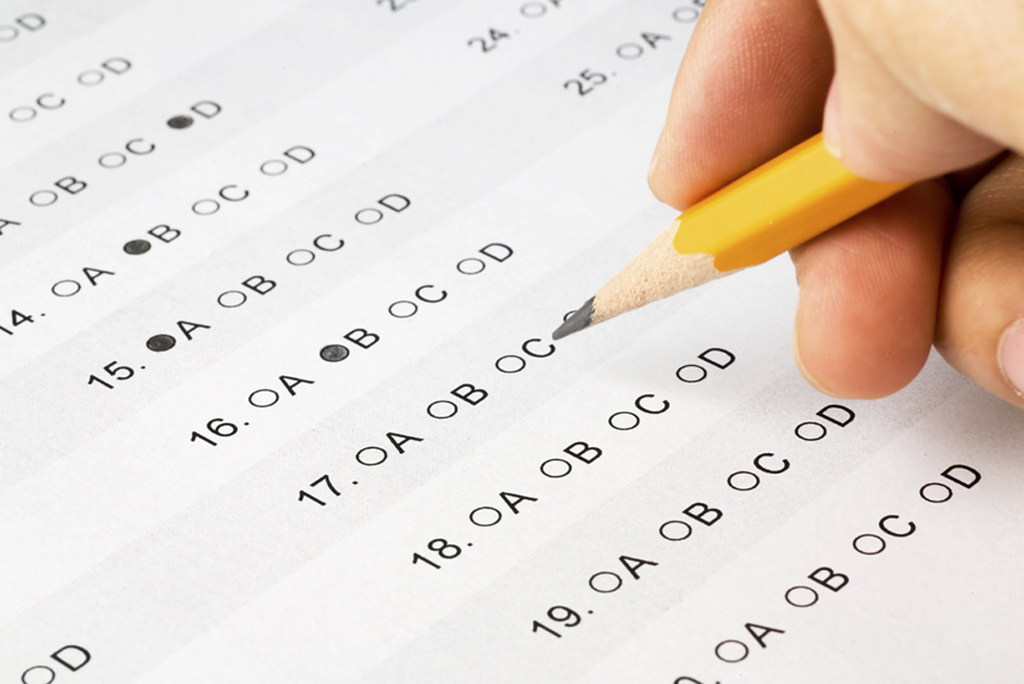The recently released scores from the Nation’s Report Card showcase declining literacy scores across the country.
The results reflect test scores from fourth and eighth graders tested in math and reading between 2017 and 2019.
Since 31 states face a decline in eighth grade reading levels, Betsy DeVos is calling the issue a literacy crisis, which has varying levels of seriousness.
The director of Cato’s Center for Educational Freedom, Neal McCluskey, believes that the crisis is not as high stakes as it seems. “We declare literacy crises often,” he stated, “not everything is a crisis all the time.”
According to McCluskey, the test scores are blown out of proportion.
The National Assessment of Education Progress issues the test that measures the math skills and reading levels of students in all 50 states.
It is not a high stakes exam, and has supposedly never been.
The scores released by the National Assessment of Education Progress do not seem to have a big impact on creating policy change according to McCluskey. “The test’s impact historically, reached its peak of how people reacted to it in the 1990s,” he said.
McCluskey emphasized that the test does not have any direct impact on how a student performs in school, so there is no pressure to perform well or change policy.
Jeff Frank, an Associate Professor in the Education Department believes that the term crisis is misleading. “One of the things that I worry about is that the results are going to be used to keep telling the story that we should defund public education due to poor performance,” said Frank.
The narrative he refers to also pushes for more spending on voucher programs that would send students to private, often religious, schools.
There seem to be several factors that contribute to the declining scores.
The Vice President of K-12 Education Policy at American Progress, Scott Sargrad, believes that the results are because of the economic recession of 2004. “Public schools are recovering from a lack of investment,” according to Sargrad.
The poor scores seem to be due to an increase of technology use at home as well as at school.” I think a foundation for literacy is communication between parents and children, and if the parent is engaged with social media, that is going to show up on the literacy rate,” Frank said.
As more schools begin to implement technology into their curriculums, Frank believes there is a visible decline in the literacy skills that children develop.
The call for policy change has been popular in response to the results of the test. One suggestion for policy change involves investing more in the public school system, according to Sargrad, particularly in poverty-stricken communities.
He believes that “we need to invest in public schools” in order to remedy the decline of public funding.
This does not seem to be the only necessary approach however. “When we hear a big problem like this we look for a single solution,” said Frank. “The reality is, is that you have to invest in a long term literacy program which is something we are not interested in since we want a short term fix.”
McCluskey shares the same views. He believes that the American culture is not fixated on academic achievement. “There is not much effort in standardized testing,” he said. “It is telling of the American culture, since the average voter is not concerned with education until results like these are released.”
In addition to the American culture’s attitude towards education, Frank thinks that teaching styles are to blame in areas with the lowest literacy levels. “The education in those communities is very drill and skill instead of literacy rich environments,” stated Frank. “When you look at high performing schools, the kids are engaged with language by being read to and using their imagination.”
According to Frank, there needs to be a holistic approach to how the United States resolves this issue that also addresses the way literacy is taught now.
The results from this test will also have an impact on the future of low income communities. “I feel like it will play out, and these kids will not even get to go to college,” said education minor, Caroline Rodi ‘20. “Communication and literacy in fourth and eighth grade, you don’t realize how much of an impact it has, but, it has a huge impact on future development.”



